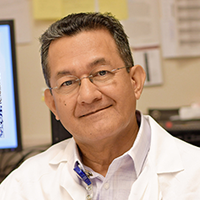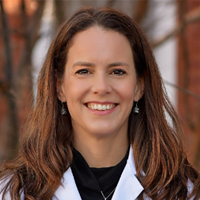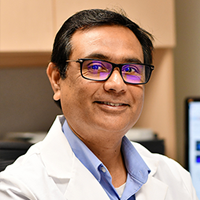IGNITE KUH (pre/post doc)

About
![]() The Integrated Virginia Research Training Centers in Kidney, Urology, and Hematology (IGNITE KUH), a pre-and postdoctoral research training program, is designed to address the increase in disease burden in kidney, urology, and hematology, where there is a shortage of the workforce to advance scientific discoveries and technology. We intend to develop a collaborative and integrated partnership involving four major research training centers in the Commonwealth of Virginia that are committed to developing the next generation of diverse KUH researchers.
The Integrated Virginia Research Training Centers in Kidney, Urology, and Hematology (IGNITE KUH), a pre-and postdoctoral research training program, is designed to address the increase in disease burden in kidney, urology, and hematology, where there is a shortage of the workforce to advance scientific discoveries and technology. We intend to develop a collaborative and integrated partnership involving four major research training centers in the Commonwealth of Virginia that are committed to developing the next generation of diverse KUH researchers.
Administrative Core
The IGNITE KUH Administrative Core will provide a unified and integrated structure, oversight, and governance for the program. Through coordinated communication and continued assessment, we will monitor outcomes and disseminate the work and successes of KUH trainees.
Professional Development Core
The primary goal of the Professional Development Core is to provide career development resources to trainees to facilitate advancement and success in a research career in KUH fields.
Network Core
The primary goal of the Network Core is to develop a statewide program by providing a platform for peer-to-peer mentorship and outreach activities to attract trainees from the three constituent institutions in the Commonwealth of Virginia. It will foster interactions with high school, college, and medical students from under-represented and minority Virginia institutions interested in KUH research.
Training Core
The Training Core will train pre and post-doctoral trainees with career interests in basic, translational, clinical, or data science research into the IGNITE KUH Training Program.
Training Mentors
IGNITE KUH faculty members are from the University of Virginia (UVA), Virginia Commonwealth University (VCU), Virginia Polytechnic and State University (VT), and Virginia Health Sciences (VHS), with expertise in four central areas:
- Hematology
- Kidney biology/disease
- Urology
- Fundamental (basic) sciences (related to hematology, urology, and nephrology)
The UVA research programs focus mainly on kidney disease, hematological disorders, or urological dysfunction using cutting-edge technologies to probe and investigate systems/computational biology, high-throughput spectral flow cytometry, data sciences, and nanoparticle development/delivery systems.
The VCU research programs are focused on hypertension, hematopoiesis, nanomedicine, vascular biology, sickle cell disease, sphingolipid biology, and urological dysfunction.
The VT research programs focus on fundamental aspects of cardiac function, vascular development and function, sepsis, and drug discovery.
The VHS research programs focus on fundamental aspects of prostate and vascular biology.
University of Virginia
University of Virginia
Virginia Commonwealth University
Virginia Polytechnic Institute & State University
High School Students
The Division of Nephrology in the Department of Medicine at UVA offers a research summer program for high school students who are interested in careers in the areas of science and medicine. Each summer 2-3 students are matched with a mentor in our division who runs a laboratory for basic science with a focus on immunology and kidney diseases. Depending on interest and experience the students can take part in a specific research project or shadow the team. The students will also receive some introductory lectures on science and medicine to enrich their learning experience. It is advised that the students work full-time for 4-6 weeks so that they can get good exposure to the world of science and have time to finish a small research project. Interested students should contact Uta Erdbrugger, MD, for more information.
Undergraduate Students
Kidney Technology Development Research Education Program (VA K-TUTOR), the NIH-funded UVA Nephrology R25 training grant (supported by NIDDK grant 1 R25 DK124918) will provide immersive research and education experience for technology-oriented undergraduate students enrolled at the University of Virginia or Virginia Tech to participate in cutting-edge research in nephrology to generate innovative solutions for promoting kidney health. Our goal is to improve the lives of 40 million people in the US with kidney diseases. The VA K-TUTOR will be a partnership with the UVA Division of Nephrology, UVA School of Engineering and Applied Science, UVA College of Arts and Sciences, and Virginia Tech School of Engineering to recruit and train undergraduate students for identifying problems in kidney research and finding novel solutions.
IGNITE KUH is funded by the National Institute of Health (NIH) Grant: 1U2CDK129500 (NIH RePORTER) and 1TL1DK132771 (NIH RePORTER).
The application can be accessed here. For additional information, contact Kareema Sesay.
Pre-Doctoral Application Deadline: March/April, 2026.
Post-Doctoral Application Deadline: open, accepted on a rolling basis.
Meet Our Team
Program Directors
-
Mark Okusa, MD (UVA)
John C. Buchanan Distinguished Professor of Medicine
Chief, Division of Nephrology
Director, Center of Immunity, Inflammation & Regenerative Medicine
-
Adam P. Klausner MD (VCU)
Professor & Endeavour Legacy Foundation
Distinguished Chair in Urology
Interim Chair – Division of Urology
Urology Residency Program Director
-
John Chappell, PhD (VT)
Associate Professor
Fralin Biomedical Research Institute
Virginia Polytechnic Institute and State University
-
Didier Portilla, MD (UVA)
Professor of Medicine
Division of Nephrology
Center of Immunity, Inflammation & Regenerative Medicine
-
Michael Brown, PhD (UVA)
Professor, Medicine: Nephrology
Center of Immunity, Inflammation & Regenerative Medicine
-
Petra Popovics, PhD (ODU)
Assistant Professor
Eastern Virginia Medical School
Macon & Joan Brock Virginia Health Sciences
Microbiology and Molecular Cell Biology
Program Leaders
-
Julia Scialla, MD (UVA)
Associate Professor of Medicine and Public Health Sciences
Director, Nephrology Clinical Research Center
-
Rahul Sharma, PhD (UVA)
Associate Professor, Medicine: Nephrology
-
Martin Safo, PhD (VCU)
Professor
Department of Medicinal Chemistry
-
Agnieszka Swiatecka-Urban, MD (UVA)
Robert J. Roberts Professor of Pediatrics
Director of Pediatric Nephrology
UVA Children’s Hospital
Administrative Team
-
Kareema Seesay (UVA)
Grants and Contracts Administrator (M&P)
-
Billi Hutchings (VT)
Program Administrator
Fralin Biomedical Research Institute at VTC
Virginia Polytechnic Institute and State University
-
Jackie McCauley (UVA)
Administrative
Generalist/Fiscal Technician
Trainees
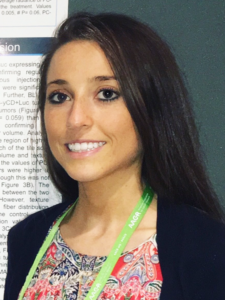 Eibhlin Goggins, BS
Eibhlin Goggins, BS
Institution: UVA
Mentor: Mark Okusa, MD
2023-present
Ebby received her BS in Chemistry (specializing in Biochemistry) from Georgetown University in 2018 and entered the Medical Scientist Training Program at the University of Virginia in 2019; in 2021, after discovering her love for the kidneys, she joined the Okusa Lab as a PhD student. For her first project, Ebby is investigating using pulsed splenic ultrasound to prevent and treat kidney disease. More specifically, her studies involve expanding ultrasound to additional mouse models of kidney disease to understand the clinical utility in different contexts. Additionally, her studies focus on understanding the mechanism behind this kidney protection provided by therapeutic ultrasound. Her second project focuses on mitochondrial dynamics and specifically the role of the mitochondrial fission protein, Dynamin-Related Protein 1 (Drp1), in kidney perivascular cells (PVCs). Her studies found that reduced PVC Drp1 protects against Acute Kidney Injury (AKI) and Chronic Kidney Disease (CKD) in mice. Current work focuses on understanding the effect of timing, cellular expression, and level of Drp1 reduction on AKI/CKD outcomes.
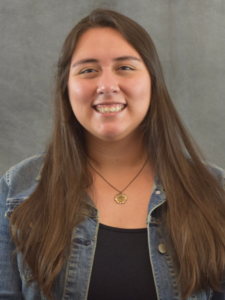 Hillary Montano, BS
Hillary Montano, BS
Institution: Va Tech
Mentor: Christopher M. Reilly, PhD
2023-present
Hilary Montano is a PhD student in the Biomedical & Veterinary Science Program at Virginia Polytechnic Institute and State University, Blacksburg, VA. She received her bachelor’s in Biological Sciences at the Virginia Polytechnic Institute and State University, Blacksburg, VA. As an undergraduate, she joined the laboratory of Dr. Anne Zajac where she worked on Bacillus thuringiensis and the Cry5b protein. After that, she became a research assistant in the laboratory of Dr. Raj Gaji, where she studied Toxoplasma gondii including experiments using CRISPR/Cas9 technology. Recently, she joined Dr. Chris Reilly‘s laboratory and became interested in studying Systemic Lupus Erythematosus (SLE), an autoimmune disease in which individuals often develop lupus nephritis. Lupus nephritis is a leading cause of mortality among individuals with SLE. Her current research is focused on elucidating the role of NF-KB-Inducing Kinase (NIK) in the non-canonical NF-KB pathway in the disease progression of SLE. She will conduct laboratory-based and preclinical studies to understand further the contribution of the non-canonical NF-KB pathway in lupus-prone mice.
 Elizabeth Thompson, BS
Elizabeth Thompson, BS
Institution: UVA
Mentor: Julia Scialla, MD, MSc
2023-present
Elizabeth Thompson is a PhD student in Systems and Information Engineering at the School of Engineering & Applied Sciences, University of Virginia. She earned her bachelor’s degree in Psychology from the School of Humanities and Social Sciences, Worcester State University, Worcester MA, and she completed her master’s in Clinical Counseling Psychology at Assumption College, Worcester MA. Before beginning her PhD, she also spent two years studying Computer Science as an undergraduate at the School of Computing and Informational Sciences, University of Maine, Orono, ME. With a computer science and psychology background, Liz has worked with vulnerable populations as a clinician for several years. Recently, she completed an En Route Master of Engineering (M.E.) in Systems and Information Engineering. She aims to gain the knowledge and skills needed to engage in research to improve treatment outcomes for individuals with chronic kidney disease (CKD). Her current research involves utilizing Machine Learning and Reinforcement Learning to develop a bias-aware AI (Artificial Intelligence) program for precision treatment of CKD-MBD (Mineral Bone Disease). Bias is a significant concern in healthcare AI and, in some cases, has worked to increase the current healthcare disparity gap.
 Jason Burchett, BS
Jason Burchett, BS
Institution: VCU
Project: Fluoxetine suppresses mast cell-mediated inflammatory disease
Mentor: James Ryan, PhD
2021-2023
 Kennedy Goldsborough, BS
Kennedy Goldsborough, BS
Institution: VCU
Project: Targeting the endogenous cannabinoid system in Sickle Cell
Mentor: Aron Lichtman, PhD
2021-2023
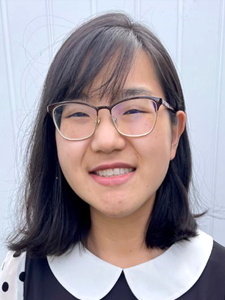 Kristin Kim, BS
Kristin Kim, BS
Institution: VCU
Project: The role of cell-extracellular matrix crosstalk in mediating the progression of fibrosis in a 3D culture model
Mentor: Christopher Lemmon, PhD
2021-2023
Lily Silverman, BS
Institution: UVA
Mentor: Sanja Arandjelovic, PHD
2024-present
Madison Williams PhD
Institution: UVA
Mentor: Brant Isakson, PhD
2024-present
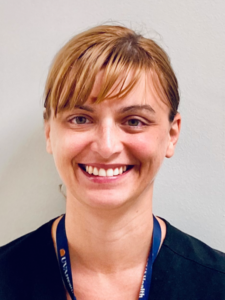 Eva Otoupalova, PhD (UVA)
Eva Otoupalova, PhD (UVA)
Institution: UVA
Mentor: Jeff Sturek, MD
2023-2024
Dr. Eva Otoupalova received her medical degree from Charles University in Prague. Following graduation, she trained in basic laboratory methods, studying mechanisms of fibroblast senescence at the University of Alabama (UAB). She then pursued a residency in Internal Medicine at Oakland University and returned to UAB as an Assistant Professor of Medicine, attending the Pulmonary and Ventilator weaning unit. She recently completed a 2-year clinical fellowship at the University of Virginia, Division of Pulmonary and Critical Care. Her project will investigate whether HIV and HIV/TB co-infection leads to dysregulated emergency myelopoiesis in sepsis, altered myeloid/lymphoid lineage, and B- and T-cell development. She will utilize samples collected and banked within the ATLAS trial, a randomized multicenter trial of early anti-TB therapy versus standard antibiotic therapy in patients with HIV admitted with sepsis in Tanzania and Uganda. This provides a unique cohort of highly characterized sepsis phenotypes in HIV patients.
 Vikram Sabapathy, PhD (UVA)
Vikram Sabapathy, PhD (UVA)
Institution: UVA
Mentor: Rahul Sharma, PhD
2023-2024
Vikram earned his PhD from the Centre for Stem Cell Research (CSCR) at Christian Medical College, Vellore. His doctoral research, conducted under the guidance of Dr. Sanjay Kumar, focused on several key areas, including the examination of perinatal Mesenchymal Stem Cells (MSC), the creation of safer human induced Pluripotent Stem Cells (iPSCs), and the application of tissue engineering techniques for translational purposes. Specifically, he was deeply interested in delving into the intricate aspects of cellular reprogramming, tissue rejuvenation, and regeneration. After completing his PhD, Vikram became a Research Associate in the laboratory of Dr. Rahul Sharma at the Center of Immunity, Inflammation, and Regenerative Medicine (CIIR) at the University of Virginia. Here, his primary goal was to gain insight into the immune system’s role in regenerative medicine. The immune system poses a significant challenge for the translational application. The role of immune cells in tissue development, repair, and regeneration is poorly understood. Currently, Vikram is actively investigating the significance of IL-33/ST2 ‘alarmin’ signaling axis in activation and mobilizing immune cells using murine models of kidney injury and kidney organoids.
 Ashley Anderson, PhD
Ashley Anderson, PhD
Institution: UVA
Project: Environmental antigens, Cross-reactive T cells, and autoimmunity
Mentor: Shu Man Fu, MD, PhD
2021-2023
 Blake Caldwell, PhD
Blake Caldwell, PhD
Institution: VT
Project: Epigenetic regulation of innate immune exhaustion
Mentor: Liwu Li, PhD
2022-2023
 Vikram Sabapathy, PhD
Vikram Sabapathy, PhD
Institution: UVA
Project: IL2-33 Hybrid Cytokine in Kidney Disease
Mentor: Rahul Sharma, PhD
2021-2023
Vikram earned his PhD from the Centre for Stem Cell Research (CSCR) at Christian Medical College, Vellore. His doctoral research, conducted under the guidance of Dr. Sanjay Kumar, focused on several key areas, including the examination of perinatal Mesenchymal Stem Cells (MSC), the creation of safer human induced Pluripotent Stem Cells (iPSCs), and the application of tissue engineering techniques for translational purposes. Specifically, he was deeply interested in delving into the intricate aspects of cellular reprogramming, tissue rejuvenation, and regeneration. After completing his PhD, Vikram became a Research Associate in the laboratory of Dr. Rahul Sharma at the Center of Immunity, Inflammation, and Regenerative Medicine (CIIR) at the University of Virginia. Here, his primary goal was to gain insight into the immune system’s role in regenerative medicine. The immune system poses a significant challenge for the translational application. The role of immune cells in tissue development, repair, and regeneration is poorly understood. Currently, Vikram is actively investigating the significance of IL-33/ST2 ‘alarmin’ signaling axis in activation and mobilizing immune cells using murine models of kidney injury and kidney organoids.
 Jennifer Sasson, MD, MSCR
Jennifer Sasson, MD, MSCR
Institution: UVA
Project: Acute and Long-Term Implications of IL-13 in COVID-19 Associated Hypoxic Respiratory Failure
Mentor: William Petri, MD, PhD
2021-2022
Oliver Pellitier, PhD
Institution: UVA
Mentor Rahul Sharma, PhD
2024-present
Oliver completed his doctorate from Florida Atlantic University (FAU) in 2024, where he was studying the role of GPCRs in neuropsychiatric disorders. Before that, he worked as a research technician studying Alzheimer’s disease and has been a lab intern at Scripps Florida studying nuclear receptors and autoimmune diseases. Oliver has had a productive career and has authored seven research articles with one of first author manuscript on his doctoral. He has continued his productivity with his first first-author manuscript, which is under preparation in the Sharma laboratory. He has also presented his work at multiple venues and has earned first prize at the FAU graduate research day in 2023. Oliver received two student research grants for his doctoral studies in 2022 and 2023. His interests are in autoimmunity and immune regulation. In the Sharma laboratory, Oliver is studying the role of checkpoint inhibitors PD-1/PD-L1 in immune checkpoint inhibitor-related nephropathy. His expertise in GPCRs also contributes to a recently funded project from the DoD to study the role of chemokine receptors, which are also GPCRs, in tissue targeting of immune-regulatory cells.
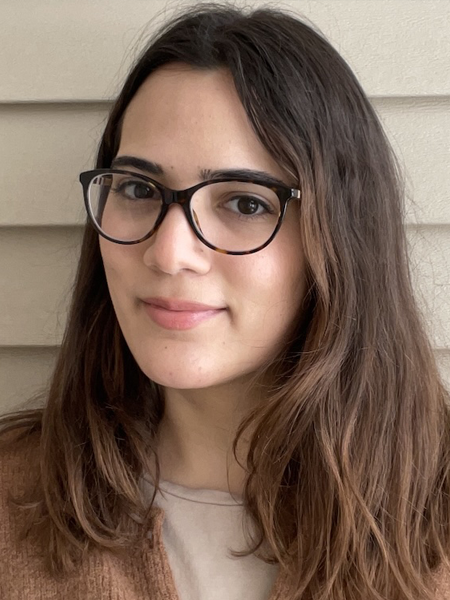 Didem Ozcan, PhD
Didem Ozcan, PhD
Didem earned her PhD in Molecular and Cell Biology from the University of Connecticut, where she conducted research under the supervision of Dr. Charles Giardina. During her doctoral studies, she evaluated a potent dihydrofolate reductase inhibitor that circumvents cellular resistance. She collaborated with genomics teams to analyze single-cell RNA sequencing data from long-term treated leukemia cells, revealing its effects on adaptive response genes and supporting the novel antifolate as a lead compound. After completing her PhD, Didem joined Montai, an AI-driven, predictable drug discovery company, as a scientist on the early discovery biology team. There, she developed high-throughput cell-based screening assays and identified early leads capable of modulating immune responses in inflammation and autoimmune pathways. In her current role as a Postdoctoral Researcher at Dr. Petra Popovics’s laboratory at VHS at Old Dominion University, Didem focuses on characterizing steroid hormone imbalance-induced macrophage activation and their role in inflammation, fibrosis, and lipid dysregulation in benign prostatic hyperplasia (BPH). Specifically, her work supports direct RNA sequencing workflows, single-cell proteomics, and 3D-culture model development to define macrophage subpopulations. These insights aim to identify therapeutic targets that regulate macrophages in BPH pathogenesis and guide the selection of the most appropriate hormonal imbalance model of BPH.




